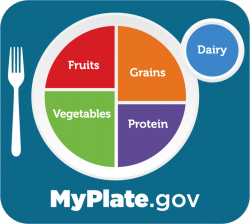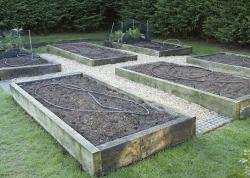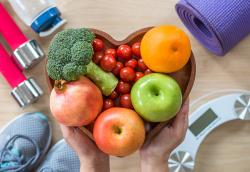Staying Healthy - Find Your Energy Balance
Recipes and Nutrition Tips - Personalize Your Plate for Nutrition Month
Physical Activity Tips - Make Every Step Count
Food Access Resources in Massachusetts - Extended Free Meals for Kids
Staying Healthy
Energy is often used as another word for calories. Energy balance is like a scale. You are in balance when the calories you eat and drink (calories in) are equal to the calories used in normal body functions and daily activities (calories out). Age, gender, muscle mass, health conditions, and activity level impact energy balance. Use these general tips to maintain your energy balance:
- Include at least 30 minutes of moderate to vigorous physical activity each day. People who are more physically active have more muscle, which uses more energy.
- Choose fruit and low-fat yogurt or vegetables and hummus for a snack instead of chips or cookies.
- Pay attention to your portion size – have smaller portions of processed foods.
- Try whole-grain foods like brown rice, oatmeal, or whole-wheat tortillas.
Energy in and energy out out do not need to balance every day. Balance over time helps you stay at a healthy weight for the long term.
Recipes and Nutrition Tips
 Celebrate National Nutrition Month and personalize your plate!
Celebrate National Nutrition Month and personalize your plate!
Eating healthy does not have to be boring. MyPlate’s food groups–fruits, vegetables, grains, protein foods, and dairy–come in all sizes, shapes, and colors. Vary the food you eat to incorporate different flavors, nutrients, and textures. Looking for a fresh way to add all five food groups to your plate? Try our delicious Greek Salad Wraps recipe. Just add some fruit like berries, sliced apples, or 100% fruit juice and a protein and you will be eating all five food groups!
Visit https://video.link/w/nLfcc for another tasty way to balance your plate with a Pineapple Fried Rice recipe from the University of Kentucky.
Physical Activity Tips
Health experts recommend being active for better health. Reaching 10,000 steps a day might sound difficult, but there are plenty of ways to increase your daily steps without it feeling like a chore. Here are some fun ways to get your body moving:
- While cleaning your house, take extra steps by putting things away.
- Take additional steps up and down the stairs.
- Park your car farther away from a store or your office.
- Walk in place while watching a television show or during commercial breaks.
- Start a friendly competition with a partner, family member, or friend to see who reaches the higher step goal for the day or week.
- Make being active a daily habit. Take a stroll with your children and pets. For more information on health teh benefits of walking, visit https://extension.psu.edu/benefits-of-walking.
 Spring is in the air, and it’s time to plan a garden from scratch.
Spring is in the air, and it’s time to plan a garden from scratch.
Whether you are a beginner or advanced gardener, planning will help you get the most from your new garden. Ask yourself these questions:
- What type of garden do I want to start? Examples include in-the-ground, raised bed, and container/window box gardens.
- What types of herbs, fruits, or vegetables does my family like?
- Where is the best location for me to grow my plants? How much sun will the garden get?
For a detailed plan, visit https://extension.wvu.edu/lawn-gardening-pests/gardening/gardening-101/planning-your-garden
Food Access in Massachusetts
 Free meals for kids extended through summer 2021 due to pandemic.
Free meals for kids extended through summer 2021 due to pandemic.
The United States Department of Agriculture (USDA) announced the nationwide extension of several waivers that allow children to continue to receive nutritious meals this summer when schools are out of session. These flexibilities are now available through September 30, 2021. This unprecedented move will help ensure that children have access to nutritious food as the country recovers from the COVID-19 pandemic.
For more information visit, https://meals4kids.org/find-summer-meal-site.

